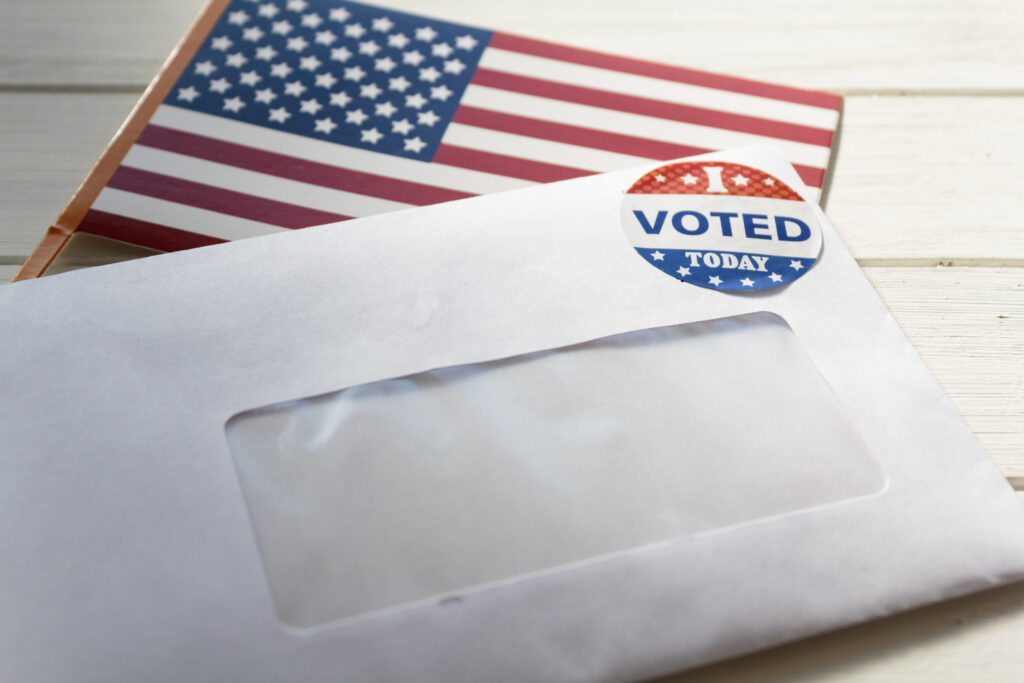President Donald Trump has welcomed a federal appeals court decision allowing Texas to enforce its 2021 law requiring voters to include an identification number with mail-in ballots, and called for similar measures across the United States.
A three-judge panel of the U.S. Court of Appeals for the Fifth Circuit on Monday unanimously reversed a lower court ruling that had blocked the law. The panel concluded that the statute did not violate federal voting protections under the 1964 Civil Rights Act.
Trump wrote on his social media platform Truth Social: “THIS IS GREAT NEWS!!! Should be Nationwide!!!“
Why It Matters
The court’s decision marks a significant win for Texas Republicans and could influence how elections are conducted in multiple states. Supporters, including Texas officials and Trump, argue that requiring ID numbers is a practical measure to prevent voter fraud and strengthen election security.
Civil rights organizations counter that the law risks disqualifying legitimate ballots, particularly from elderly, disabled and minority voters who rely more heavily on mail-in ballots. Legal experts say the ruling could shape national debates on voting rights and regulations ahead of the 2026 midterm elections.
What To Know
The Fifth Circuit’s decision overturns a 2023 ruling by U.S. District Judge Xavier Rodriguez, who had blocked the law, finding that ID numbers were not relevant to determining voter eligibility under Texas law.
Monday’s ruling allows the state to enforce the 2021 law requiring voters submitting mail-in ballots to provide either their driver’s license number, state identification number, or the last four digits of their Social Security number. Ballots missing this information or containing mismatched numbers can be rejected by election officials.
Civil rights groups including OCA-Greater Houston, the League of Women Voters of Texas and REVUP-Texas plus the Biden administration had challenged the law, saying that the requirements could cause legitimate ballots to be discarded due to minor administrative errors.
Newsweek has contacted the OCA-Greater Houston, the League of Women Voters of Texas and REVUP-Texas for comment.
The plaintiffs argued that rejecting ballots for missing or mismatched ID numbers violated the “materiality provision” of the 1964 Civil Rights Act, which states that no one can be denied the right to vote due to an error or omission that is not material to determining voter eligibility.
The published opinion was authored by Trump appointees Judge James Ho and Judge Don Willett and Reagan appointee Judge Patrick Higginbotham. Judge Ho noted that requiring only names and addresses left the mail-in ballot system vulnerable to fraud because that information is publicly available, and stated that requiring ID numbers is material to confirming a voter’s identity and eligibility.
At the time Senate Bill 1 was signed into law, supporters—including Republican lawmakers and Texas Governor Greg Abbott—said the measure was essential to ensuring election security. Abbott said it “ensures trust and confidence in our elections system—and most importantly, it makes it easier to vote and harder to cheat.”
However, multiple fact-checking and academic studies suggest that documented incidents of mail-in ballot fraud are extremely rare. According to data from the Brennan Center for Justice, only 491 cases of absentee ballot fraud were identified between 2000 and 2012 out of billions of votes cast.
What People Are Saying
Judge James Ho wrote in the opinion: “The number-matching requirements are obviously designed to confirm that every mail-in voter is who he claims he is. And that is plainly material to determining whether an individual is qualified to vote.”
He added: “That information is easily available to anyone who simply requests it…. As a result, any person can request and receive that information about a registered voter, use that information to apply for a mail-in ballot, and then cast the ballot, with minimal risk of detection.”
What Happens Next
Texas has some of the nation’s strictest voting rules, allowing mail-in voting only for those over 65, individuals with disabilities, people in jail, or residents temporarily out of state. The 2021 identification number requirement adds another layer of verification for these ballots.
The U.S. Department of Justice, which joined the lawsuit challenging the law, has not announced whether it will seek further review of the case.
Read the full article here
